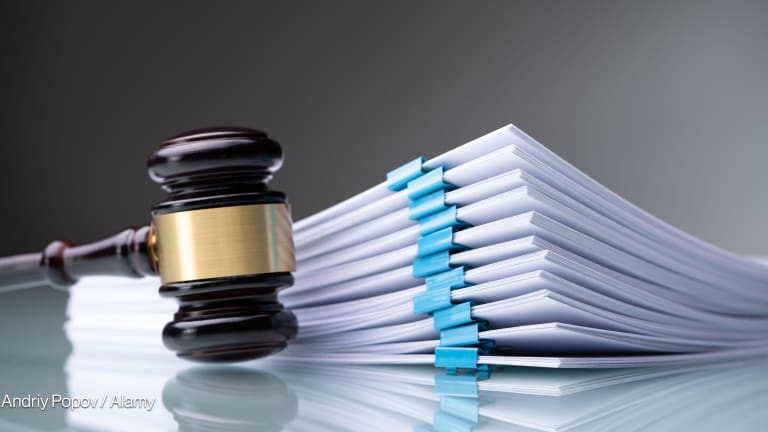The World Bank’s watchdog needs to evolve to meet the challenges that will be brought by the bank’s new focus on climate change, experts say. As well as adapting to new types of cases, the watchdog — known as the Inspection Panel — needs to become more proactive about reaching out to communities, they say. Speaking at an event to mark 30 years since the panel was launched, its outgoing chair, Ramanie Kunanayagam, said the change in the World Bank’s priorities could bring new accountability challenges. “As the bank goes more into looking at climate measures, the kind of impacts that would come from that would perhaps be different to the traditional types of cases we receive, which is largely on large infrastructure such as roads, dams, and transition lines,” Kunanayagam said at the Center for Global Development. Speaking to Devex, she cited the example of a 2021 case raised by community members from Togo who claimed that a bank-funded project to reduce coastline erosion had damaged their ability to earn a living through artisanal fishing. Bank staff, more accustomed to working on large infrastructure projects, failed to identify the possible negative impacts on fishing communities, the panel’s investigation concluded. Kunanayagam also cautioned against assuming that climate-friendly projects are automatically positive for both the environment and local communities. “Even large solar does have impacts, including land take, resettlement, and loss of livelihoods, and we need to recognize that upfront,” she said. The panel may need to bolster its staff’s climate expertise in order to stay ahead of the changes, she told Devex. Last month, the World Bank's governing board signed off a new vision statement for the institution — to "create a world free of poverty on a liveable planet" — which broadens the bank’s anti-poverty mission to include tackling climate change. Set up in 1993, the Inspection Panel was the first of its kind to be housed within a multilateral development bank. Today, all MDBs have some kind of accountability mechanism modeled on the panel. Its aim is to investigate complaints by communities negatively affected by projects that the bank has helped to fund. The bank’s record on accountability is under scrutiny in the wake of stories alleging that the International Finance Corporation, the arm of the World Bank that invests in private companies, ignored cases of child sexual abuse linked to an education company it invested in. The alleged abuse was brought to light by IFC’s own accountability mechanism, the Compliance Advisor Ombudsman, or CAO, but a media investigation accused IFC of attempting to hinder the investigation. Asked where the Inspection Panel, and other accountability mechanisms, still needed to improve, Dyhia Belhabib, executive director of the Nautical Crime Investigation Services, said they needed to be more “proactive” about letting communities know that these grievance mechanisms exist. “There is this assumption that communities know of the existence of the Inspection Panel, but that assumption is pretty bold,” Belhabib said during the CGD session. “So there is definitely a need [for the panel] to play a more proactive role as opposed to the reactive role that the Inspection Panel has right now.” Belhabib suggested that bank and Inspection Panel staff could work “in parallel” during a project to find out whether communities have any concerns to voice. This would require bank staff to “internalize” the idea of accountability, she added. However, this will be difficult while many staff see accountability mechanisms as something to fear, or worry that raising concerns about a project could land them in trouble. “It’s about starting to normalize the idea of accountability, that it’s not seen as [a] heavy-handed police officer ready to pounce but it really is about trying to … prevent harm when you can and then be responsive where there are unintended consequences,” said Gina Barbieri, a former principal specialist at CAO.
The World Bank’s watchdog needs to evolve to meet the challenges that will be brought by the bank’s new focus on climate change, experts say.
As well as adapting to new types of cases, the watchdog — known as the Inspection Panel — needs to become more proactive about reaching out to communities, they say.
Speaking at an event to mark 30 years since the panel was launched, its outgoing chair, Ramanie Kunanayagam, said the change in the World Bank’s priorities could bring new accountability challenges.
This story is forDevex Promembers
Unlock this story now with a 15-day free trial of Devex Pro.
With a Devex Pro subscription you'll get access to deeper analysis and exclusive insights from our reporters and analysts.
Start my free trialRequest a group subscriptionAlready a user? Sign in
Printing articles to share with others is a breach of our terms and conditions and copyright policy. Please use the sharing options on the left side of the article. Devex Pro members may share up to 10 articles per month using the Pro share tool ( ).
Search for articles
Most Read
- 1
- 2
- 3
- 4
- 5








